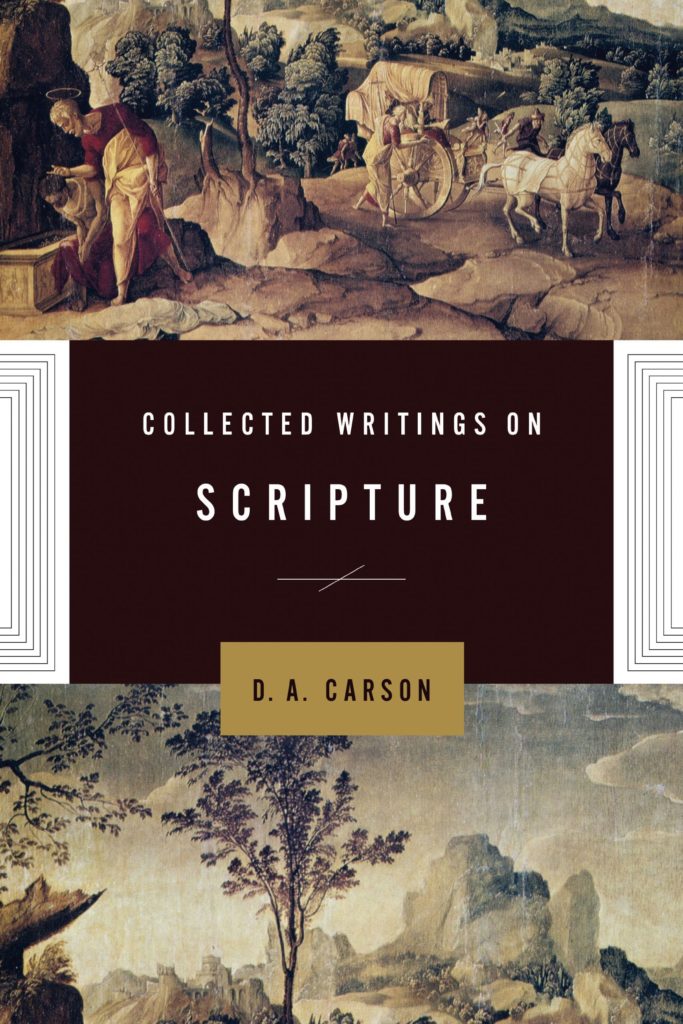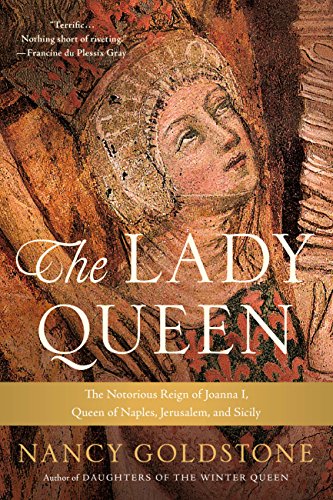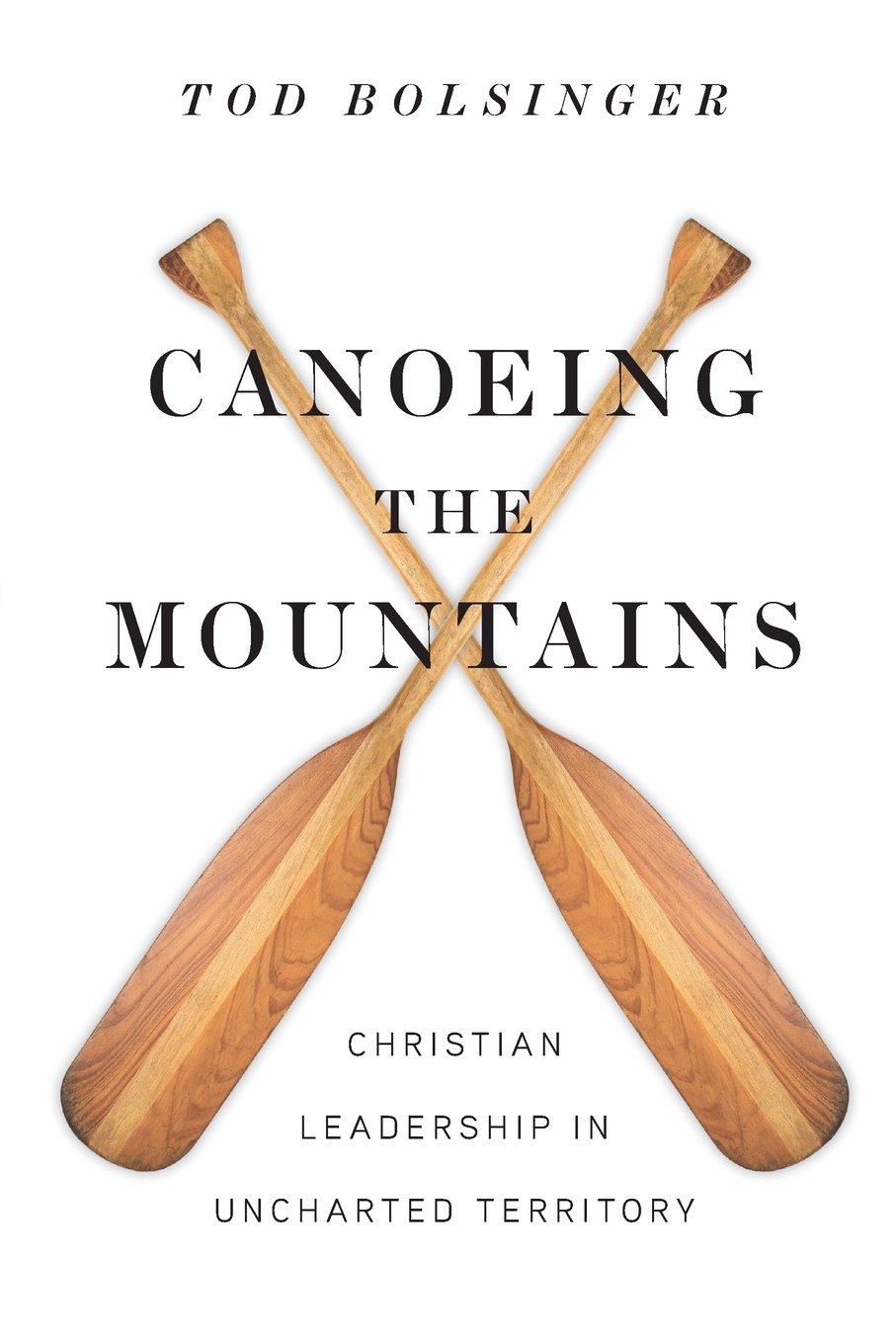D.A. Carson piles up a bunch of essays and book reviews that help the reader see the vast expanse that exists among Christians when it comes to understanding the Bible. In this review, I will try to reflect some of that broadness by merely quoting the authors themselves and occasionally making a comment or two.
The challenge of reading the N.T. into the O.T.
This issue has long been a difficulty for me. Its plain to see that at least a certain measure of interpretive “twisting” is going on when N.T. authors reach back into the O.T. and appear to infuse the ancient texts with new meanings. The phenomenon breaks every conceivable rule there is when it comes to hermeneutics, is there a reasonable explanation? The question comes to us:
“How can we meaningfully talk about Scripture’s authority if, as is alleged, later writers of Scripture not only self consciously violate earlier Scripture but unconsciously impose on it an interpretive grid that makes a mockery of any natural reading of the test?” (101)
“The N.T. writers came to believe that Jesus was the Messiah and that he had been crucified and raised from the dead. They then ransacked their Bible, what we call the Old Testament, to find prooftexts to justify their new-found theology, and ended up yanking things out of context, distorting the original context, and so forth.” — Barnabas Lindar — (282)
Is that right? Are there no other possibilities?
- The N.T. author is not interpreting the O.T. text but merely applying it.
- The O.T. text is being stretched way beyond its context, but that is the privilege of those with apostolic authority. They do not have to play by the same rules we do. (264)
- The N.T. authors were explaining what the O.T. means in light of Christs coming. A 100% new interpretive lens was given, which is all part of the plan.
- They were reading in what is not there, but everyone was doing it back in that day. That was how the game was played in the 1st century.
- For D.A. Carson, Christian belief is genuinely warranted by O.T. Scripture. Christianity is all there, lying dormant in the O.T. Legitimately uncovered with those who have been given new eyes to see.
For me, I still do not understand what is going on. There has to be something more profound than what Lindar suggests, right? Nevertheless, I am not convinced that Carson is correct either. I suspect, no one truly knows, we all make our best guesses to understand what is going on based on some good scholarship and a lot of faith in our a priori convictions about the Bible.
Pobodies Nerfect
To err is human; the biblical documents are human. Therefore they must prove as unreliable as human beings are. (34)
“The Bible, so far as its’ form is concerned, is simply one more religious book, albeit an important one, and therefore not itself immune from errors large and small. It is not truth in the sense that what it says, God says. Rather, the Bible is truth insofar as God works through it to disclose himself to individuals.” (34-35 Barth)
God, through inspiration, is stirring up faith in the gospel through the word of Scripture. This happens even though the human text is beset by normal weaknesses. (83 Pinnock)
“The Bible is entirely trustworthy for the purpose for which it is given” (88 – Marshall). The implication is that since the Bible’s purpose is not fundamentally history or science, it need not be held to as stringent standards in those categories. The Bible as “true” means that we commit ourselves to believe its statements, accepting their proportional content, and as a result “trust” them or “lay ourselves open to them” (310)
Faith more important than facts.
We are finite creatures; without the faculty of omniscience, we have no absolutely certain base on which to build (35)
This is not welcome news for those who need certainty to carry on in the faith. Faith inevitably grows best in the soil of mystery, right? Is this not why faith exists in the first place, because we do not know?
Reason by itself is a rather stumbling criterion of truth, beset as it is by a smorgasbord of values, theories, and predispositions shaped in remarkable independence of reason. (59)
I agree with Carson here. It is best not to put our ultimate hope in reason.
Interpretation is the real challenge.
We inevitably bring our own interpretative “grids” with us; there is no such thing as a totally open mind (38)
With Biblical Authority out of vogue, people can make Scripture support almost anything they want.
“A type of theft has emerged as some fellow evangelicals, along with non-evangelicals, wrest from the Bible segments that they designate as no longer the Word of God. Some now even introduce authorial intention or the cultural context of language as special rationalizations for this crime against the Bible, much as some rapist might assure that he is assaulting my wife for my own or for her good. They misuse Scripture in order to champion as biblically true what, in fact, does violence to the Scripture 107-108 Carl F. Henry.
It is not hard for me to see that people are cherry-picking and twisting Scripture to suit their own ends all the time. The concern I have, is, isn’t everyone today doing this? It seems to me, all of us have a unique twist on the Scripture so as to tease out of it, whatever justifications we need for the lives we live. In some ways, is this not what “Interpretation” is? I understand and share Henry’s angst, especially for the more egregious violations, but to a certain degree, is not every single Christian among us guilty of his charge? The first person who says “oh no, not me, my interpretation is based only on a faithful understanding of the text” Is the person I should be the most nervous about.
Misreading Scripture says Wright has led to false beliefs about the rapture, dispensationalism, the prosperity gospel, support for slavery, racism, Zionism, and the death penalty. (290) The problem that I have is that Christians are continually churning out interpretations and applications of Scripture that are at odds with each other. How does this help inspire confidence that we have any clue about what the Scripture says? Wright knows this, and so he says that the Scriptures should only be “taught by the churches accredited leaders” (291). This takes us straight back into the pre-reformation era. To which no one is willing to go. Carson is quick to point out, “I had not noticed him using that expression until he himself was elevated to the see of Durham.”
The Bible has an uncanny knack of undermining any position one might want to take. On the one hand, if the church sides with those who feel it necessary to go to war, it faces texts about loving enemies and turning the other cheek; on the other hand, if the church wishes to encourage peace, love, and understanding, it nevertheless reads that Jesus did not come to bring peace but a sword. For centuries the Bible is claimed by both sides of innumerable debates.
Indeed, interpretation is a real challenge.
The Marshall Plan
Historically, the Marshall Plan was the U.S. effort to rejuvenate Europe after WW II. The U.S. could not just stand by and let Europe disappear into the dust. In the same way, neither can the Christian conclude, as Barth says, that the Bible is just another religious book. The U.S. was not interested in being 100% responsible for the restoration of Europe either, that would be exercising too much control. In the same way, Christians should reject any sort of “dictation” theory when it comes to the Scriptures; that is an extension of too much support, which in the long run will not help. There has to be a middle road somewhere. I Howard Marshall tries to find it, but he knows that is no easy task.
Should I so much as deviate to the left and suggest that not all the Scripture says is true in the strictest sense of that term, I shall come under strong criticism and possibly even ex-communication from the right, not simply for saying so, but for saying so as a confessed evangelical; and should I throw in my lot unreservedly with my colleagues on the right, I shall undoubtedly suffer at the hands of my colleagues on the left, who will doubt not only any claim I dare make to be a biblical scholar but also my sanity. (218)
Nevertheless, he soldiers on and makes his case for how to understand the Bible, In short, Marshall believes the Bible should be considered trustworthy, that conversations around Inerrancy are unhelpful at best, and that conclusions about the inspiration of Scripture are based on faith, not fact. (219)
The Bible is trustworthy for the purposes for which God inspired it. Marshall argues that this analysis has the effect of shifting the focus away from the truth of the Bible to its adequacy. (220) This is precisely the meaning of 2 Timothy 3:16. Verses like this one are about the function Scripture, not its Inerrancy. (202) (Abraham)
Marshall wants us to see the story of the Bible as perfect; it is the overarching narrative which “guides people to salvation and the associated way of life.” This is the better story around which we must shape our life. Focusing on technical details is an unhelpful distraction away from Scriptures’ intended purpose. We must concede, Marshall argues, that the “true/false category is sometimes unhelpful.
The Bible is full of historical approximations, various kinds of imprecisions, condensing of passages, reporting of general content, and an authorial disinterest in precise words. It is fine to be aware of these things, but when all we do is focus on developing suitable explanations for perceived errors as evidence in defence of inherency, we have lost our way. Marshall concludes that the term “inerrancy” should be abandoned because it “needs so much qualification, even by its defenders, that it is in danger of dying the death of a thousand qualifications. For Marshall, trustworthy is a better word to describe Scripture. He is not worried about the domino theory. If Inerrancy falls, orthodoxy will not fall. This concern, to him, is not a “logically rigorous” one.
“We must have a Bible that allows for a genuine historical mistake…and other mistakes.”
Even after all of the historical approximations, various kinds of imprecisions etc. etc. are explained. We will discover, he says, that there are far more uncertainties about the Bible that are generated by textual variants, difficulties in interpretation, and problems of discerning appropriate applications.
If God’s purposes did not include the provision of a guaranteed text, a guaranteed interpretation and a guaranteed application for today, what right have we to assume that he gave an original text that was guaranteed to be utterly precise? (221)
Marshall no longer feels as though suspending judgement on critical issues or constantly qualifying one’s doctrine will establish any measure of trustworthiness in Scripture.
“There is no simple formula which will enable us to solve all our difficulties, but faith is never free from risk or from the duties of self-examination and self-correction.”
On the whole, Marshall anchors his faith in a Bible that is trustworthy. (229) The “Marshall plan” seems reasonable to me. Even so, any notion of “limited errancy” will be a real struggle for lots of Christians. “being prepared to admit that errors exist,” says Marshall is just not an option for many.
Too many qualifiers, excuses, and explanations to be helpful.
When all facts are known (which they will not ever be) the Scriptures in the original autographs (which we do not have) and correctly interpreted (which cannot be done with certainty) will be shown to be wholly true in everything that they affirm whether that has to do with doctrine or morality or with social, physical or life sciences. I find in this definition three excuses that render it useless. The qualifiers create a text that does not exist.
What is the Bible?
“Whatever else the Bible is it is a massive story” (285) a story that finds fulfillment in Jesus
Hearing the word “Scripture” and instantly thinking rule book is a mistake (286) N.T. Wright. Defence through hesitation does not help either.
You discover a “problem” in the Bible.
Something just feels wrong.
What is the typical strategy?
Withhold judgment, read a bit more closely, do a little more research, and if you are patient enough, you will get the right answer eventually. Genre, or context, or authorial intent, or historical imprecision, or some such plausible explanation will emerge so that the Scriptures perfection can be successfully defended. If not, one continues to withhold judgment indefinitely. For Peter Enns, all this expenditure of energy borders on intellectual dishonesty. He would rather accept biblical diversity (stuff does not agree with other stuff in the Bible all the time) and conclude that the Bible has no superficial unity. However, it does move towards Christ as the final destiny of Israel’s story and the hope of all Christians.
Wright and Enns, and several others in this book, are attempting to tie the notion of the authority of Scripture to the Bible’s storyline. (292) However, there is some pushback. Carson does not like the “story” idea of the Bible. He believes “truth” is a more accurate representation of what the Scripture is. “Story” is too reductionistic for him. A rescue story, how nice, Carson says, but what about judgment, and the wrath of God, it is not just a rescue story it is a God is going to kick your a** if you do not repent story just as much. Plus, there are loads of rules that are expected to be followed. It is not just a story at all. (297-299) This sounds rough to me, but is it more accurate?
Love must lead the way
Augustine introduces the Hermeneutic of love. Which has become wildly popular today, as the major theme of the Bible through which all other parts must be interpreted.
“The meaning of the biblical texts (must be interpreted) in a manner constant with a life of Charity,”
says the old sage of North Africa. So that is the whole point of the Bible then? Love? Wallace agrees, the imprecatory Psalms, for example, must be taken in the light of Augustine’s principle; thus, they are negative examples for us today. Anything not in keeping with the Augustinian principle of love gets discounted, marginalized or thrown out. Thus, as we have seen in today’s popular versions of Christianity, Homosexuality is in, and Hell is out. Anything at odds with love is bogus. The trouble is “love” is such an incredibly elastic interpretive lens. With love leading the way “anything goes, so long as it does not hurt another” becomes the interpretive philosophy of Scripture. All undesirable commands & teachings found in the Bible get conveniently punted to the trash can in the name of love. Abuse abounds, but even still, I think Augustine is on to something. Whatever else the Bible is, it is a love story first of all.




